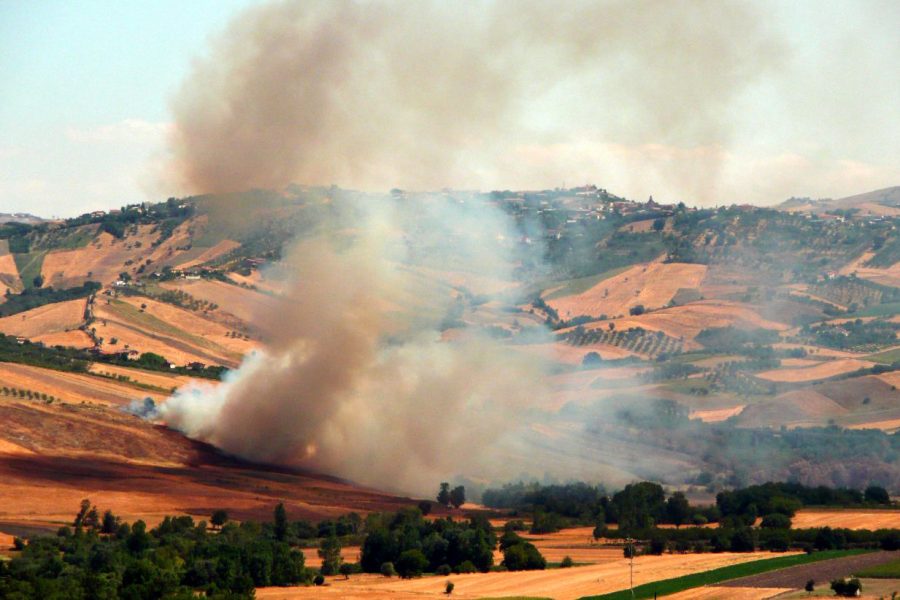Pullman experiencing slower wildfire season
Residents encouraged to remain cautious despite slow year
Pullman Fire Chief Mike Heston said wildifre season usually starts in July and lasts until August. This year, dry conditions caused more than 50 wildfires in western Washington in June, a month earlier than expected, but the season will last until some point in September.
September 6, 2019
Washington has seen fewer wildfires this year than expected, according to officials at the Pullman fire department.
Pullman Fire Chief Mike Heston said this wildfire season in Pullman was predicted to be similar to 2015, with lots of fires and smoke.
This year, the wildfire season is slower because there are better resources like aerial firefighters, and the department has been extinguishing fires more quickly.
The wildfire season usually starts in July and goes into August, he said. This year it started in June and will end sometime this month. He said the wildfire season seems to move up a month every year.
Deputy Fire Marshal Tony Nuttman said the wildfires that happened this year were a lot smaller and easier to control, contributing to the slow season. These smaller fires were most often caused by human error.
Weather can also affect the likelihood of wildfires, Heston said. Excess snowpack from the winter caused vegetation underneath to grow. Then, the dry heat caused this vegetation, as well as grass and trees, to become more flammable.
These dry conditions sparked over 50 wildfires in western Washington a month earlier than expected, so Heston thought it meant this wildfire season would be an active one.
Lightning storms also cause more wildfires than people would expect, Nuttman said. This year, the lightning storms came with rain and therefore decreased the chances of a fire.
Most wildfires are not caused by nature, Heston said. Between 1992 and 2012, researchers found that firefighters responded to fires caused by humans 84 percent of the time, according to a study published in the Proceedings of the National Academy of Sciences. Human activity accounted for 44 percent of the total area burned.
He said residents should still be cautious even though it has been a slow wildfire season.
Always fully extinguish fire pits and other flames and keep an eye on any fire to protect your property, Heston said.
People should also not use fireworks when the surrounding area is dry, Nuttman said.

















